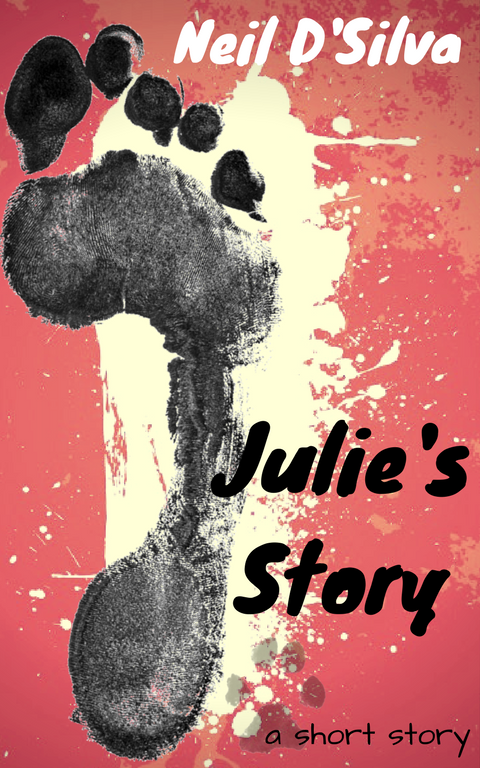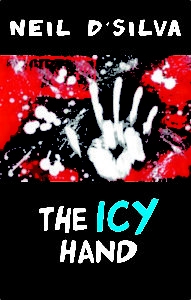My mother had a mother of whom I had heard very little in those first thirteen years of my life. But, around the time I met Marlena for the first time, I also began to hear more of my grandmother. My mother took me to visit her once too—her house was in a remote corner of the town it took us three hours to reach—and made me talk to her. Not that the old woman understood half of what I told her about my school, but that conversation helped transform the notion of an abstract ‘grandmother’ to a more concrete ‘Grandma’ in my mind.
“Grandma is sick,” my mother told me on the way back home.
“What has happened to her?” I asked.
“Age has gotten to her. She cannot remember things. She fails to recognize people. It is good that you spoke with her now at least.”
“Why did I not speak with her earlier?”
“You don’t want to know about all those things. They are too far back in the past. Only remember this. It was not your fault that you did not meet her before today. Not my fault either, nor your dad’s. It was her own fault. But now she is old, she is sick, and such things should be forgiven.”
My mother spoke that like the true Christian she believed she was. I nodded.
And then when Grandma began to fall sicker, Mother had to visit her more and more. She could not take me with her all the time, and she did not trust me to be alone at home either. She always had the paranoia that I would keep the television running and doze off and the television would explode due to the heat. So, she began to scout for people to babysit me.
One day she asked Aunt Mercy, a neighbor of ours, to keep me at her house. Aunt Mercy had another sister named Candice and they spoke all through the afternoon as I pretended to bury myself in my books. Their talks were full of gossip, which was guarded at first owing to my presence in the house, but then became looser as they realized I was not interested. If only they knew how sharp my ears were! I could hear them even as I read the answers aloud to myself.
In the evening, they were joined by another old hag, Aunt Janet, and the threesome had a merry time chatting about anyone and everyone. Except my mother, of course, for I was right there.
And then the discussion veered toward the inevitable topic of Miss Nose in the Air. And no sooner did I hear that name than my ears stood up on end.
“I have heard she is an actress,” Janet said.
“No, no, she has a daughter who is an actress,” Mercy said.
At that Candice let out a little snort and said, “Judy told me… Judy, that choir organizer… anyway, she told me that she has a husband without marriage.”
This brought out sufficient oohs and aahs from Janet.
“He is some kind of movie director,” Candice said with effect.
“Oh, these Hollywood people!” Janet said as though she had been living in Hollywood since the earliest times in its history.
“He comes to visit her sometimes,” Mercy added.
“Does he now?” Janet said. “I wonder when he comes.”
“It’s always after rosary time,” Candice said. Rosary time for the Catholic families in The Seabird meant 8:45 p.m. to 9:00 p.m.
“And…” Mercy said, casting a furtive glance at me and lowering her voice, “he leaves in the mornings.”
More oohs and aahs.
And that night, when I was back home, I don’t know why I found myself imagining Marlena with the unknown man who was supposed to be her ‘husband without marriage’. I could not clearly understand what they would do for a whole night—maybe watch those late night movies that were prohibited for me? I thought of asking Johnny about it, but somehow I didn’t want to tell him anything about Marlena. I wanted to keep all information I knew about her to myself. I don’t know where that possessiveness came from, but I wanted Marlena all to myself.
***
Then one day, mother couldn’t find anyone to keep me with. Aunt Candice had herself fallen sick and everyone else was busy with something or the other. Finally, she knocked at the one door she didn’t expect she’d ever do.
When Marlena opened the door, a whiff of jasmine assailed my nostrils even before I saw her. She had just had a bath. I could tell from the moisture in her ringlets. But she still had had time to put on her makeup. “What does she put makeup on for, if she is alone at home all the time?” my mother had asked me that night after she returned, and I had no answer to that.
“Marlena,” my mother said, “I have come to ask you for a favor today.”
“Sure, Edith,” Marlena said, “anything.” And she clutched the sides of her robes together, but not before I had caught an eyeful of her milk-white skin underneath. It made something happen to me in my groin, but I had to check that as I was in the presence of not one but two women and one of them was my mother.
“I’d like to know if you could allow Jeff to stay at your place for today?” my mother asked, holding my arm tightly. “These are really difficult days for me. You see, my mother has got Alzheimer’s and she is quite alone. I could bring her here and look after her, but she refuses to budge. I am appointing a nurse for her today, and will be at her place till evening. I mean… it is all right if you are busy or something; then I’ll just have to take him along.”
There was a moment’s silence, and I began to feel that I’d lose this wonderful opportunity to spend a day with the woman of my fantasies.
“No, no, that would not be a problem at all,” Marlena then said, and I felt butterflies moving in my guts. “Geoffrey can stay here with me. Will you be okay with that, Geoffrey?”
“Call me Jeff,” I said with a smile that was probably as goofy as I thought it was.
“Thank you so much Marlena,” my mother said. “I’ll send him right away. This really means a lot to me.”
Back home, I dressed up almost like I did when going for mass on Sundays. I put on long pants and the white full-sleeved shirt that my father had got stitched for me from his tailor.
The day with Marlena was quite unlike any other I had ever had in my life before. Here I was, sitting like a gentleman on her couch, facing her, and attempting to actually make conversation. I had carried my books along, but I did not feel like reading them that day. I wasn’t going to waste even a moment of this precious time.
I looked at her painting her nails. I wanted to break the ice with her, but I was worried I would say something that she would laugh at. I usually did those things. Normally I was a good speaker, even on stage, but when it came to one-on-one conversations with people who mattered, my tongue deceived me on the best of occasions.
Finally, she sensed me looking at her and broke the ice.
“What do you do, Jeff?”
It was a meaningless question—and I was sure it meant nothing to her—but it was a wonderful conversation-starter. There were lots of things I did, and I began talking about them. I told her of my one gold medal and three bronze medals in athletics that year, and my A grades in Science and English, and my tryst with interschool debating. The best part was that she seemed suitably impressed. Like other elders, she did not just grunt ‘hmm’ at the end of each sentence I said, but she actually asked questions that showed she was listening and not just hearing.
“You know I can make portraits,” I told her enthusiastically. I never told anyone about this budding talent of mine, not even my mother. Or maybe I told my mother once and she had waved it away. Anyway, I deeply felt like I should tell Marlena this.
“Oh, how wonderful!” she said and her eyes went round in eagerness. It instantly made me feel all warm and fuzzy inside. “Could you paint me?” she asked.
“Sure!” I said almost too loudly. Painting her would give me free license to ogle at her without feeling ashamed. It would be better than taking a photograph. “But I am just learning how to do it,” I added, just to keep my options open.
“It’s okay,” Marlena said. “You could practice on me.”
Those words did something to me I cannot quite explain. Especially the last two words. If Johnny and the others would have been here, they would have made an obscene innuendo about it and sniggered to high heavens. And that put a thought in my head—what would Johnny and the others say if they saw me alone at her house?
So she gave me a writing pad and a pencil. “Would that be enough?” she asked. The equipment was not quite appropriate for an artist—the writing pad was actually a letterhead pad that so unromantically had the name of an unpronounceable medicine on its masthead and the pencil was one with a dull unsharpened lead. But I, with all my manners intact, said that it was perfectly fine.
“Where do you want me to sit?” she asked.
I moved a chair to a spot where the light from the window fell directly. “This will give better natural light,” I said.
“Good idea,” she said like a schoolgirl and enthusiastically sat on the chair. Back now when I think about that day, I don’t know what was in her mind exactly when she surrendered to me in that fashion. Did she do it because she really thought I would create a masterpiece for her? Did she do it because she was curious to see how I saw her? Or did she do it because she thought I was a child who needed to be patronized?
But I think we can strike off the last option—the times we had in the subsequent days left no doubt in my mind. Thinking of me as a child was the last thing she did.
Continue to Part 3.






